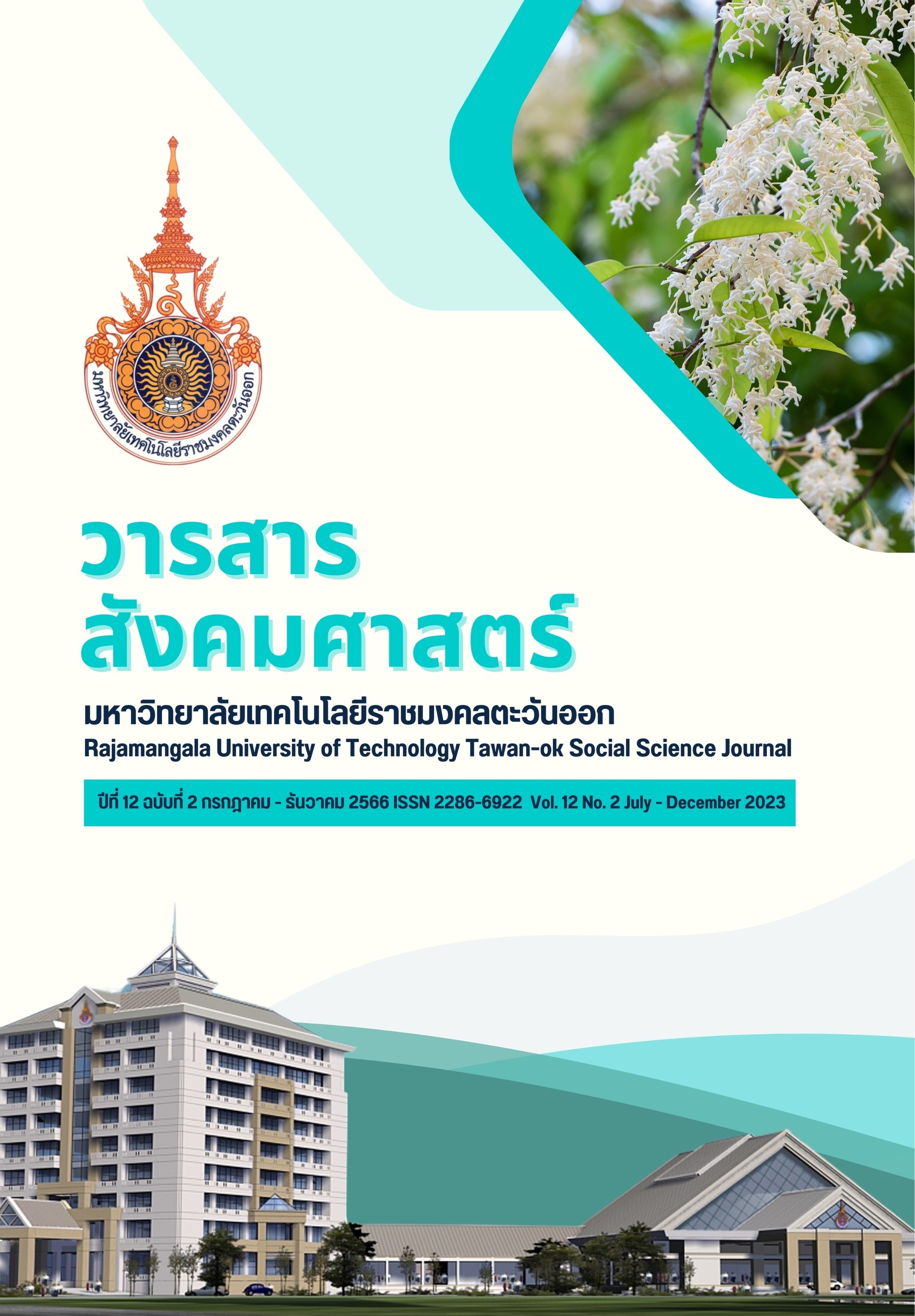Integration Management of Learning and Teaching using Problem-Inquiry based Learning DISIDA Model for Mobile Robot with Bluetooth Education
Main Article Content
Abstract
The purpose of this research paper is 1) to develop a problem-based integrated learning model for learning Mobile Robot with Bluetooth, 2) to build and find the effectiveness of the Mobile Robot with Bluetooth instruction set using an improved teaching model. 3) To compare academic achievement between the experimental group learning using the developed teaching style and the control group studying normally in class, and 4) to assess the satisfaction level of learners learning with the improved teaching style. The conceptual framework of the research is the integration of the Problem-Inquiry based Learning model, and constructivism’s theory. The developed DISIDA model consists of 6 processes as: 1) Determination, 2) Information, 3) Solution, 4) Inquiry, 5) Discussion and 6) Assessment. The research tools include the developed DISIDA model, integration management of teaching activities, instructional package of Mobile Robot with Bluetooth, quality and satisfaction assessment form. The statistical analysis included mean, standard deviation, t-test and the standard criteria of efficiency’s Meguigans. After that, the developed research tools were tested with a sample of 60 bachelor's degree students who are enrolled in the microprocessor and microcontroller course, Faculty of Industrial Education, Rajamangala University of Technology Suvarnabhumi. The research results shown that the appropriation of the developed DISIDA learning and teaching model is at a high level (mean equaled to 4.20) and efficiency of instructional package met the standard criteria of efficiency’s Meguigans (equaled to 1.18). The results of comparing the students’ learning achievement using the DISIDA learning and teaching model is higher than normal classroom with statistical significance at .05, the learners’ satisfaction was at high level (mean equaled to 4.25).
Article Details

This work is licensed under a Creative Commons Attribution-NonCommercial-NoDerivatives 4.0 International License.
References
Chamanan, P., Suchin, V. & Tweesak, C. (2021). he Effects of Inquiry Learning Management and Problem
Based Learning Management in the Basic Science Course on Scientific Problem-Solving Ability and Scientific Mind of Mathayom Suksa III Students at Matthayom Wat Bueng Thonglang School in Bangkok Metropolis. Technical Education Journal: King Mongkut’s University of Technology North Bangkok, 12(1), 60-69.
Ekkaphan, P. & Somsak, A. (2019). Instructional management using simulation based RISDA learning model for teaching of industrial electronics. In The 11th National Conference on Technical Education and the 6th International Conference on Technical Education (pp. 44-48). Thailand : KMUTNB Bangkok.
Kanokwan, R. & Somsak, A. (2020). Development of P-PIADA based Disciplinary Integrated Teaching Model on Communication Network Analysis for Electrical Engineering Education. Journal of Education Naresuan University, 24(3) : 97-102.
Kanyawit, K. & Somsak, A. (2019). Development of Instructional Activity Package based on STEM Education Process for High-frequency Transmission Engineering Education. Technical Education Journal: King Mongkut’s University of Technology North Bangkok, 10(2), 92-100.
Nuttawut, S., Pattaraporn, C. & Chade, S. (2021). The Learning Achievement and Satisfaction of Upper Secondary School Students on Learning Management of Inquiry-Based Learning (5E) with an Electronic Book. Journal of Education Studies Chulalongkorn University, 49(4).
Paitoon Sinlarat. (2016). Thai education 4.0 is more than education (2nd ed). Bangkok: Dhurakij Pundit University.
Panumat, M., Phronntip, K., Ittirit, L., Kasem, S. & Intira, M. (2021). The Education Act: Significance for Learning Management in the 21st Century. The Journal of Pacific Institute of Management Science (Humanities and Social Sciences), 7(3), 74-86.
Pichaya, K. & Wisud, P. (2021). Development Learning Activities Based on a Design Thinking Process and Project Based Learning to Enhance Innovators in Grade 10 Students. Journal of Education Studies, 49(2).
Pichit, U. & Somsak, A. (2020). Integration Management of Learning and Teaching using Project-based DAPOA Model for High Frequency Electronic Circuit Technology Education. Journal of Education Naresuan University, 24(3) : 220-231.
Saranrat, B. & Anirut, S. (2017). Effects Of Blended Learning by Using Inquiry-Based Teaching Methods on Analytical Thinking Ability on Data and Information Lesson of Matthayomsuksa 1 Students, Matthayomsiriwanwari 3 Chachoengsao School. Veridian E-Journal, Silpakorn University, 10(3): 2680-2698.
Sireewat, A. (2017). Problem-Based Learning (PBL): The Challenges of Nursing Education to Foster The 21st Century Learning. Nursing Journal of the Ministry of Public Health, 27(2), 15-30.
Sirichai, P. (2023). Research Problem Based Learning Management using as A Basis Students’ Strong Citizenship Course General Science Faculty of Science and Technology Thepsatri Rajabhat University. Journal Of Management Science Sakon Nakhon Rajabhat University, 3(1), 1-8.


